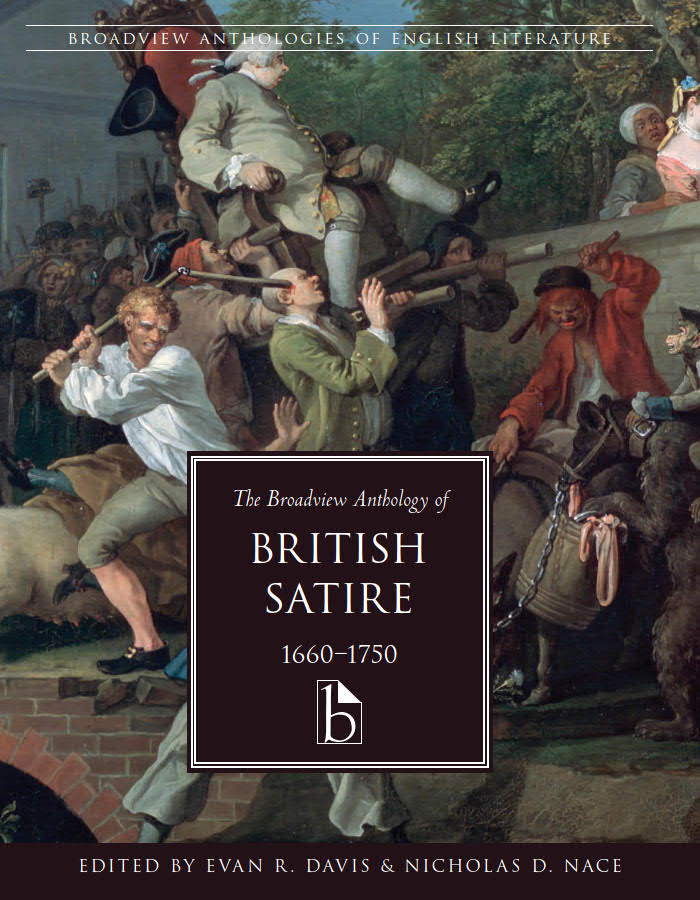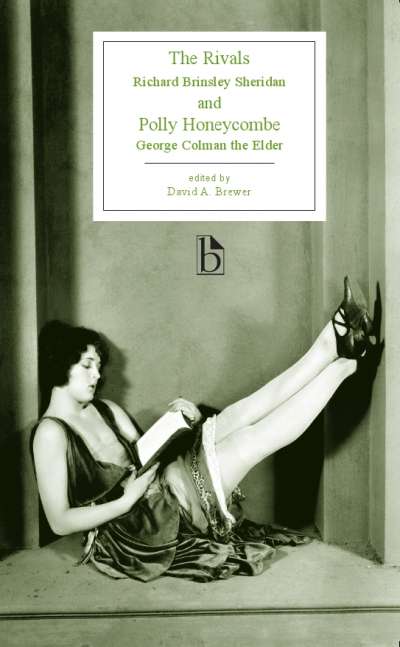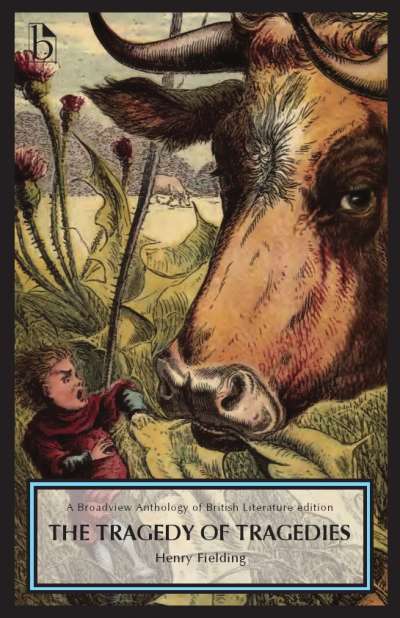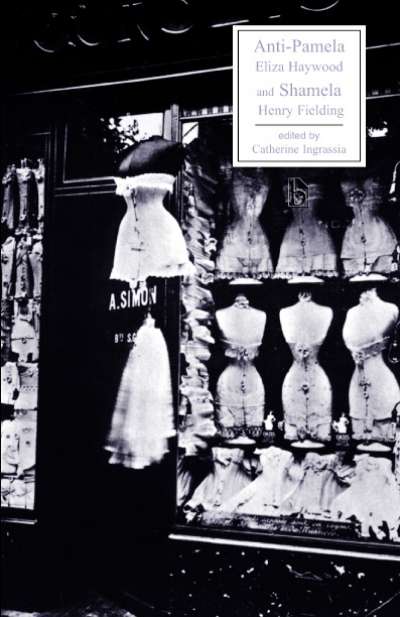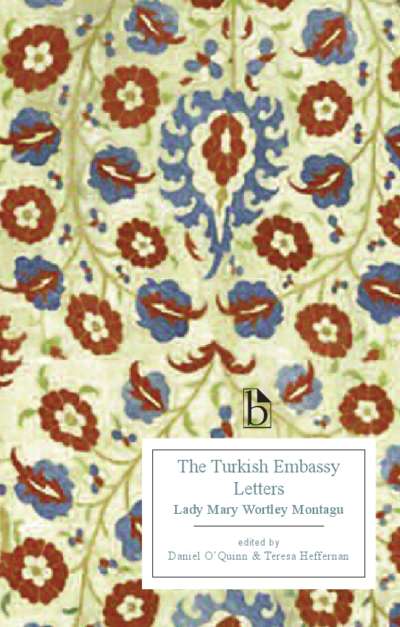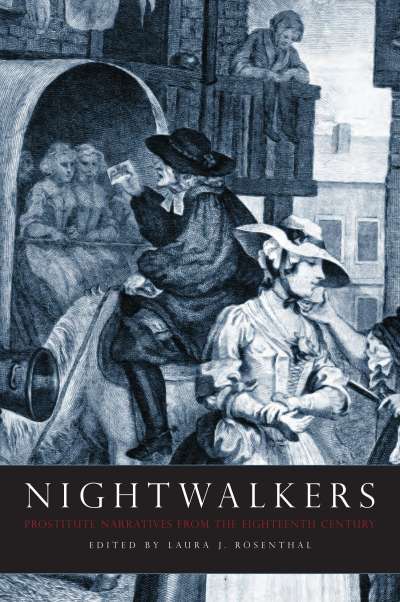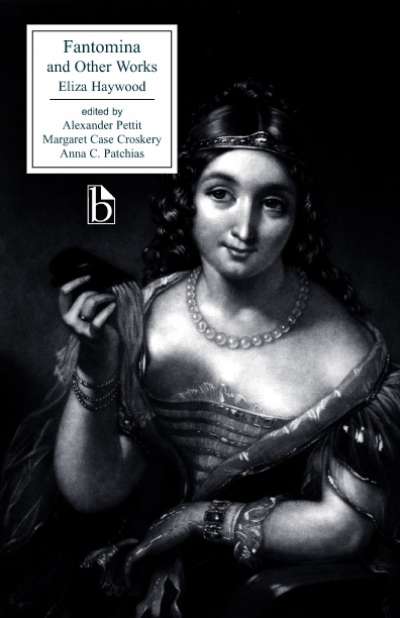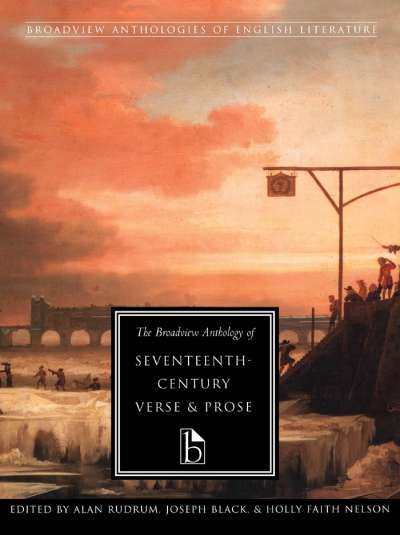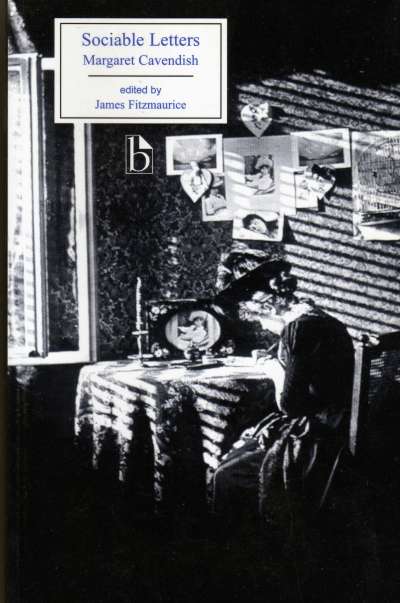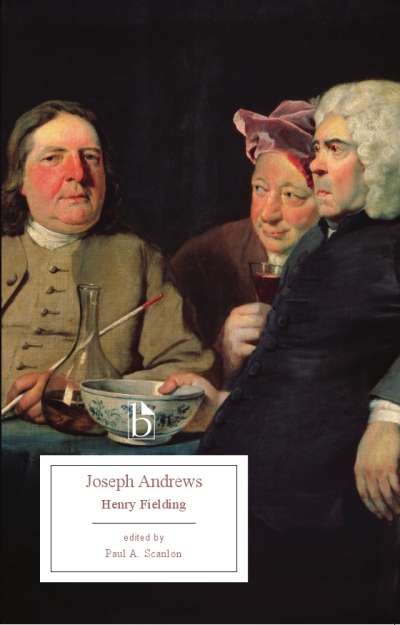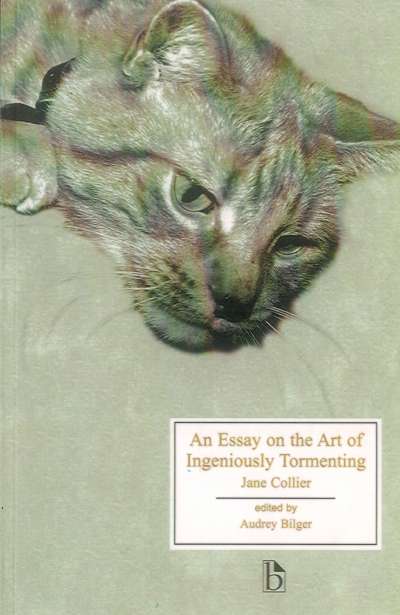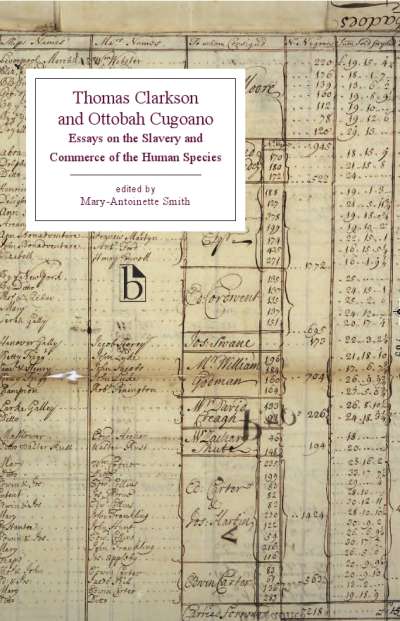The Broadview Anthology of British Satire, 1660–1750 provides instructors and students with a thorough introduction to the highpoint of British literary satire. Reflecting current pedagogical practice and scholarship, the anthology presents works by thirty satirists, including eleven women. The contents are expansive: they include canonical, frequently taught texts; less anthologized works by major satirists; and works by writers who have been traditionally excluded from anthologies. Biographical headnotes, crisp footnotes, and carefully edited texts make the book suitable for use in both undergraduate and graduate classrooms. By turns raucous, piercing, acerbic, winking, vexatious, and sly, the satires in the anthology will provoke fresh, dynamic approaches to this crucial literary period.
Comments
“Much of the important satire written during the so-called ‘Age of Satire’ was initially published in literary miscellanies, and The Broadview Anthology of British Satire, 1660–1750 does valuable work in reviving the copiousness and exuberance that characterized these collections. Evan Davis and Nicholas Nace assemble texts that are representative of the diverse range of the period’s satiric forms: mock-epics and mock-pastorals; Horatian, Juvenalian, and Ovidian imitations; Menippean satires; ironic fables; lampoons; satiric epistles; broadside ballads; parodies, burlesques, and travesties; graphic satires; and, notably, meta-satires and critical essays upon satire. Students will appreciate the judicious headnotes and footnotes, which place texts in their literary and cultural contexts without inordinately distracting from their satiric art. And specialists will be grateful to have, in a single volume, both canonical classics and satires that deserve to be better known. This anthology will fill a ‘hiatus’ (to borrow a Swiftian term) in the field.” — Darryl P. Domingo, University of Memphis
“Davis and Nace have assembled an anthology that will be the new starting point for anyone studying poetic satire of the Restoration and eighteenth century. The first volume of its kind published in over a generation, this anthology stands out for its inclusion of many women writers, its judicious headnotes and footnotes, and its selection of texts that speak both to one another and to the practice of satire itself. Whether your interest is in the era’s political and religious tensions, its contested constructions of gender, or simply its abundance of well-crafted bawdiness and invective, you’ll find plenty of material in this collection to keep you reading.” — Jonathan Greenberg, Montclair State University
Acknowledgments
Introduction
A Note on the Texts
Anonymous
- The Poor-Whores’ Petition 1668)
- The Gracious Answer of the most Illustrious Lady of Pleasure (1668)
- The Whores’ Petition to the London Prentices (1668)
- The Prentices’ Answer to the Whores’ Petition (1668)
- The Citizens’ Reply to the Whores’ Petition, and the Prentices’ Answer (1668)
Samuel Butler (c. 1612–80)
- From Hudibras (1663)
- Satire Upon the Licentious Age of Charles II (written c. 1674, published 1759)
- The Elephant in the Moon (written 1670–71, published 1759)
Abraham Cowley (1618–67)
John Dryden (1631–1700)
- Absalom and Achitophel (1681)
- Mac Flecknoe (written 1678, published 1682)
- From A Discourse Concerning the Original and Progress of Satire (1693)
- The Third Satire of Juvenal (1693)
Aphra Behn (1640–89)
- To Poet Bavius (after 1688)
- On a Juniper-tree Cut down to Make Busks (before 1680)
- A Satyr on Doctor Dryden (c. 1687)
- The Disappointment (published 1680)
John Wilmot, Earl of Rochester (1647–80)
- A Satyr on Charles II (1673)
- Signior Dildo (written 1673, published 1703)
- A Satyr against Reason and Mankind (1674)
- An Allusion to Horace (1675)
- Upon Nothing (1678)
- A Satyr Against Marriage (before 1680)
- The Imperfect Enjoyment (1680)
Sir Carr Scrope (1649–80)
- In Defense of Satire (1676)
John Oldham (1653–83)
- Satire upon a Printer (1680)
- Spencer’s Ghost (c. 1683)
Mary Chudleigh (1656–1710)
- On the Vanities of this Life (1703)
- To the Ladies (1703)
Daniel Defoe (1660–1731)
- From The True-Born Englishman (1701)
Anne Finch, Countess of Winchelsea (1661–1720)
- On my being charged with writing a lampoon at Tunbridge (after 1706)
- A Tale of the Miser and the Poet (1709)
- Ardelia’s Answer to Ephelia (after 1685)
- To Mr. Pope in answer to a copy of verses (c. 1714–17)
Matthew Prior (1664–1721)
- The Hind and the Panther Transvers’d (1687)
- Jinny the Just (1708)
John Arbuthnot (1667–1735)
- A Treatise of the Art of Political Lying (1712)
Jonathan Swift (1667–1745)
- From A Tale of a Tub (1704)
- A Meditation upon a Broom-Stick (written 1703, published 1710)
- A Description of a City Shower (1710)
- A Modest Proposal (1729)
- The Lady’s Dressing Room (1732)
- A Beautiful Young Nymph Going to Bed, &c. (1734)
- Strephon and Chloe (1734)
- Verses on the Death of Dr. Swift D.S.P.D (written 1731–32, published 1739)
- The Day of Judgement (written 1732–33, published 1773)
Sarah Fyge Egerton (1668–1723)
- Satyr against the Muses (1703)
- The Emulation (1703)
Alicia D’Anvers (baptised 1668–1725)
- From The Oxford-Act: A Poem (1693)
Richard Steele (1672–1729)
- Tatler 92 (Satire vs. Libel) (1709)
Elizabeth Thomas (1675–1731)
- The True Effigies Of A Certain Squire (1722)
John Philips (1676–1709)
- The Splendid Shilling (1701)
John Gay (1685–1732)
Mary Barber (c. 1685–1755)
- Conclusion of a Letter to the Rev. Mr. C— (1734)
Henry Carey (c. 1687–1743)
Alexander Pope (1688–1744)
- The Rape of the Lock (1714)
- Impromptu to Lady Winchilsea (written c. 1714, published 1741)
- From Peri Bathous (1728)
- An Epistle to Burlington (1731)
- The First Satire of the Second Book of Horace, Imitated (1733)
- An Epistle to Dr. Arbuthnot (1735)
- An Epistle to a Lady (1735)
- Epilogue to the Satires, Dialogue I (1738)
- From The Dunciad, in Four Books (1742)
Lady Mary Wortley Montagu (1689–1762)
- Tuesday. St. James’s Coffee-House. Silliander and Patch (written 1716)
- Epistle to Lord Bathurst (written 1725, published 1748)
- Verses Addressed to the Imitator of the First Satire of the Second Book of Horace (1733)
- The Reasons that Induced Dr. S[wift] to Write a Poem Called the Lady’s Dressing Room (1734)
Mehetabel Wesley Wright (1697–1750)
- Wedlock: A Satire (written 1730, published 1862)
William Hogarth (1697–1764)
- Hudibras Sallying Forth (1725/26)
- The Harlot’s Progress (1732)
- Beer Street and Gin Lane (1751)
- Enthusiasm Delineated (1760–62)
- The Bruiser (1763)
Mary Jones (1707–78)
- An Epistle to Lady Bowyer (written 1736, published 1750)
- After the Small Pox (published 1750)
Samuel Johnson (1709–84)
- London (1738)
- The Vanity of Human Wishes (1749)
Mary Leapor (1722–46)
- Strephon to Celia (published 1748)
- Man the Monarch (published 1751)
- Crumble-Hall (published 1751)
Charles Churchill (1732–64)
- From An Epistle to William Hogarth (1763)
Image Credits
Evan R. Davis is Elliott Professor of English, Hampden-Sydney College and editor of Robinson Crusoe (Broadview, 2010, 2014). Nicholas D. Nace is Elliott Associate Professor of Rhetoric, Hampden-Sydney College and editor of Shakespeare Up Close (Bloomsbury, 2012) and The Fate of Difficulty in the Poetry of Our Time (Northwestern, 2017). Together, they co-edited Options for Teaching Modern British and American Satire (MLA, 2019).

